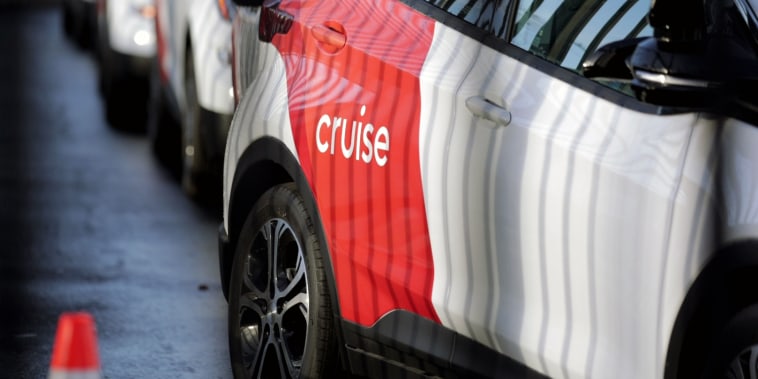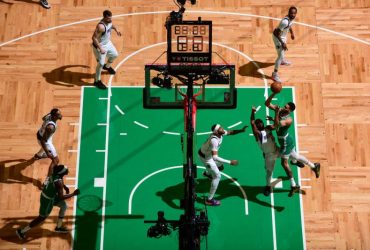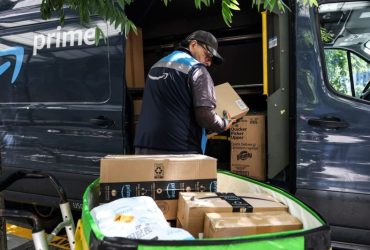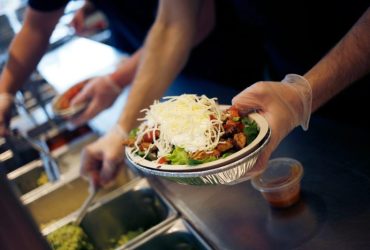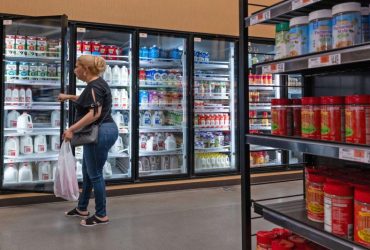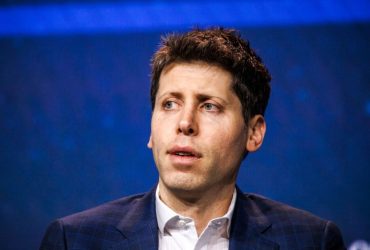Cruise, the driverless car company owned by General Motors is back in the spotlight after another close call with a pedestrian.
The California DMV is investigating allegations that a self-driving vehicle operated by Cruise nearly hit a 7-year-old boy after failing to yield to him and his family while they crossed the street in San Francisco last year, according to DMV records obtained by NBC News.
The family says the driverless Cruise car headed straight towards them as they crossed the street.
“[The car] was fully stopped, and then it started when he had gotten maybe a third of the way or halfway across the intersection,” said Sascha Retailleau, who was walking with his wife and son in their Mission District neighborhood when they crossed 20th Street near the intersection of York Street on the evening of Aug. 14. “It started to accelerate towards us like we weren’t there.”
Retailleau said the car swerved as it approached, right towards his young son Luke, who said he had to rush ahead to avoid being hit. Retailleau later reported the incident to the DMV, which told NBC News it couldn’t disclose any details from its ongoing investigation.
“If I didn’t run, it would have hit me, probably,” Luke, 7, said. “I felt scared.”
Luke, 7, says a driverless Cruise car nearly hit him while he was walking with his parents near his home in San Francisco last summer.Michael Horn / NBC Bay Area
The alleged incident came just one day after an eerily similar near-miss was caught on camera in the city’s Pacific Heights neighborhood. The video, posted to the website Reddit and later obtained by regulators, shows a Cruise car accelerating straight towards two women and two children walking in a crosswalk. The vehicle then brakes and swerves around them at the last second.
Cruise acknowledged its vehicle was involved, but declined to comment further, citing an ongoing federal investigation looking into the incident.
As for the similar near-miss reported by Retailleau, Cruise said its records show none of its driverless cars traveled through the specific intersection around the time Retailleau and his family were crossing the street.
“We have reviewed data and video in response to this complaint, but to date, we have not identified a Cruise driverless [autonomous vehicle] traveling in the locations on the dates or times provided that encountered any pedestrians,” said Cruise spokesperson Erik Moser. “We are committed to operating with safety and transparency and continue to investigate this incident.”
Retailleau, a mechanical engineer who has built robots himself, says there’s no mistaking what he saw that day: a driverless Cruise car with the company’s signature orange stripe.
“We were scared at first and then I was just angry, super angry,” Retailleau said. “My kid could have been hurt or killed by this Cruise vehicle.”
The National Highway Traffic Safety Administration is now investigating at least four incidents involving Cruise vehicles and pedestrians, including the one posted on Reddit.
“The Office of Defects Investigation (ODI) has received reports of incidents in which Automated Driving System (ADS) equipped vehicles operated by Cruise LLC (Cruise) may not have exercised appropriate caution around pedestrians in the roadway,” the agency stated in a summary of its investigation.
Retailleau reached out to Cruise to explain how one of its driverless cars nearly hit his son, but after giving the company all the details it asked for, he said he is still waiting to hear back from Cruise more than five months later.
“There was no apology,” he said. “There was no ‘we’ll try to make this right.’”
Cruise admits to the NBC Bay Area Investigative Unit it never replied to the family, adding it apologizes for the lack of communication.
“They shouldn’t be allowed to have 2,000 pounds of metal rolling through the streets of San Francisco, potentially endangering other people,” Retailleau said. “Here is a company that is beta testing on the public.”
The embattled car company is now at the center of at least five separate state and federal investigations looking into the company’s safety record and whether it purposefully misled regulators and the public. Cruise denies the accusations.
Cruise’s fleet of 400 driverless cars has been grounded since last October. The company suspended operation of its driverless vehicles in San Francisco, Austin, Phoenix and Houston after California regulators determined the company posed an “unreasonable risk to public safety.” Cruise hasn’t announced when or where it expects to get its cars back on the road.
Cruise declined an interview request from NBC News, however, in a statement said, “we are focused on advancing our technology and earning back public trust.”
Cruise’s driverless vehicles have remained off the road for more than three months. Michael Horn / NBC Bay Area
Critics, including top lawmakers, continue to argue the driverless car industry lacks oversight, saying current regulations have failed to keep up with the technology.
Late last year, NBC News exposed a loophole that has allowed driverless cars in California to avoid penalties when they break the rules of the road. Across the state, traffic tickets issued for moving violations must be issued to an actual driver, according to the DMV, so driverless vehicles have essentially been immune from those fines.
“It’s really been a very glaring hole in the law,” said California Assemblymember Phil Ting, who represents communities in both San Francisco and nearby San Mateo counties. “This is new technology, and we have to get it right the first time.”
Ting wants driverless car companies held liable and the traffic tickets sent to them when their vehicles violate traffic rules, so he is pushing for a new state law following the recent NBC News investigation.
“Really appreciate that story for coming out and highlighting, frankly, the need for the legislation that I’m introducing,” Ting said. “I think your specific story validates everything I’ve been hearing in San Francisco.”
Phil Ting.Michael Horn / NBC Bay Area
The Autonomous Vehicle Industry Association, which represents the largest driverless car companies in America, says it is willing to support closing the legal loophole.
“It has never been the expectation of the autonomous vehicle industry that our vehicles are not able to be ticketed,” said Jeff Farrah, CEO of the association. “If there is clarification that needs to be made in California on this issue … we are committed to sitting down and working that through with the appropriate policymakers.”
If Ting’s legislation passes, it likely wouldn’t take effect until 2025, giving autonomous vehicles about another year of traffic ticket amnesty before they begin facing the same types of penalties and fines as human drivers.
“There’s no way for law enforcement to really hold them accountable,” Ting said. “There’s no way for law enforcement to really engage with these vehicles.”

